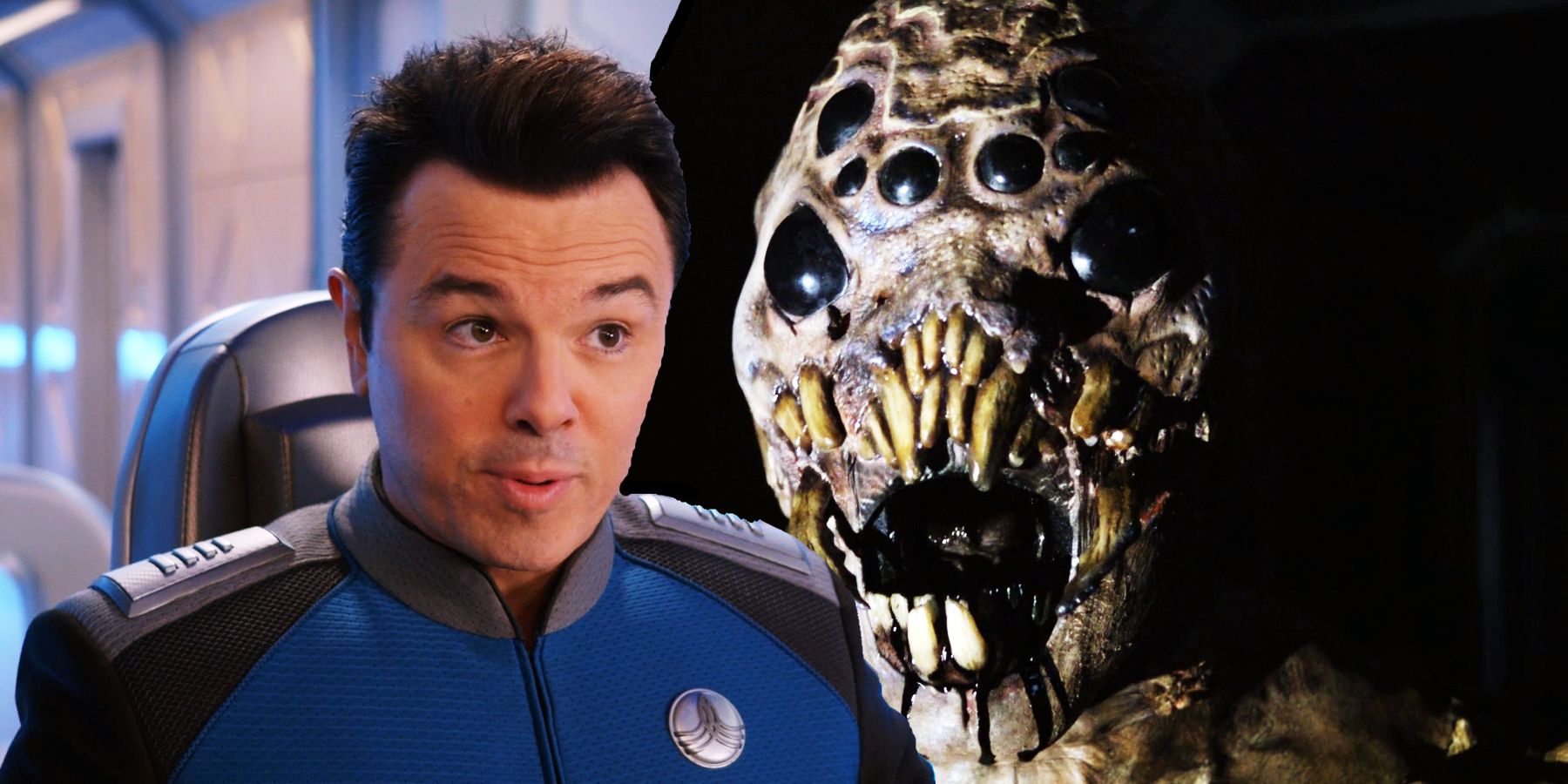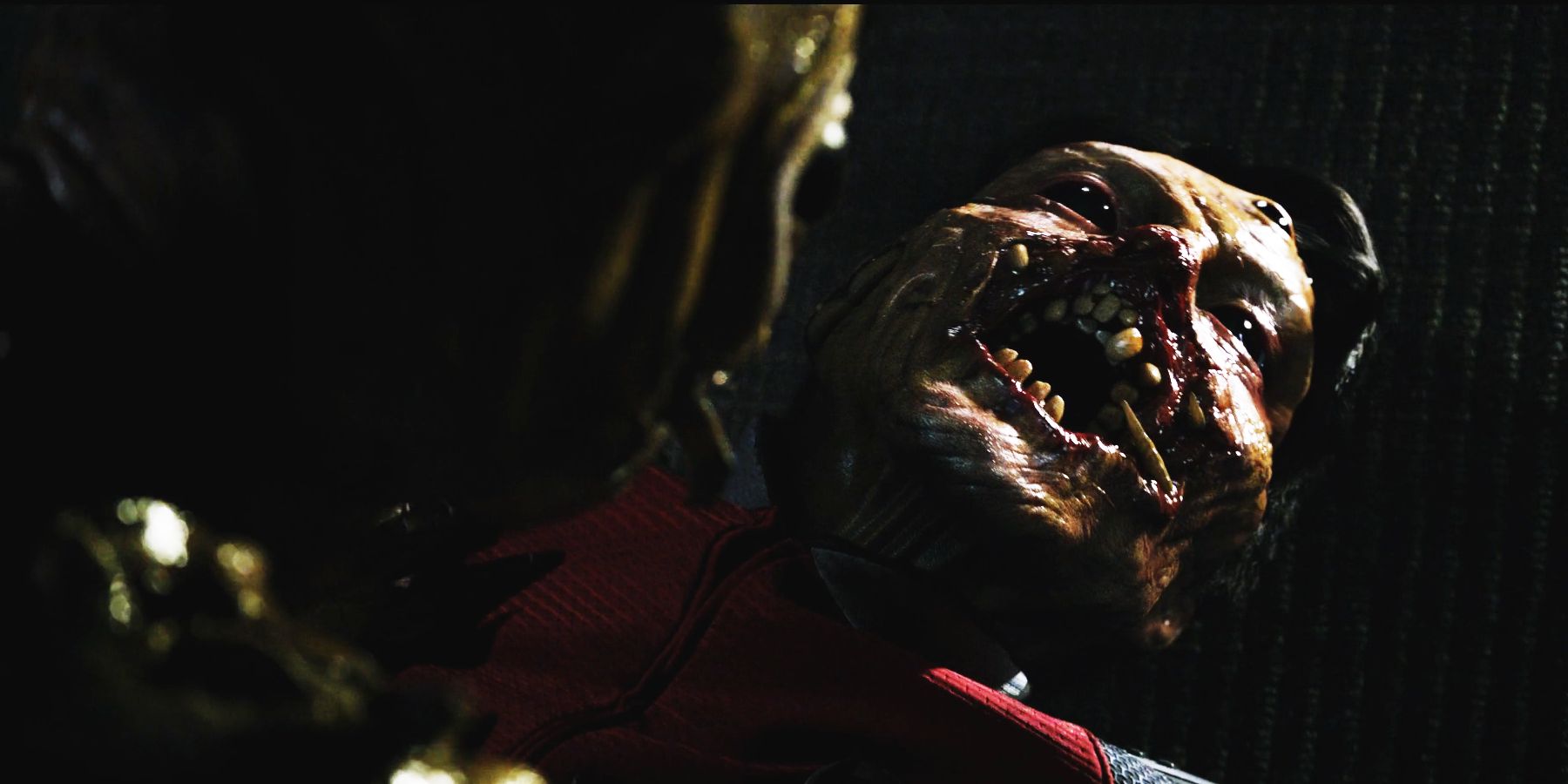Warning: SPOILERS for The Orville season 3, episode 2, "Shadow Realms."
The Orville season 3, episode 2, "Shadow Realms," justifies the show's rebranding as The Orville: New Horizons, but in a deeper way than it first appears. Created by Family Guy's Seth MacFarlane, the sci-fi comedy-drama has recently returned after three years off-air, moving from Fox to Hulu. It's an affectionate tribute to Star Trek, which has become popular for merging the space exploration and adventure of the franchise with the strong character and comedy work associated with McFarlane.
In recent episodes, there has been a pronounced shift away from comedy into more science-fiction-orientated storytelling. After season 3, episode 1, "Electric Sheep," put a dark twist on an old Star Trek storyline, episode 2 takes things further. The "Shadow Realms" of the episode's title refer to a region of space that is uncharted by the Planetary Union. After Captain Ed Mercer (Seth MacFarlane) and his crew negotiate travel through diplomatic talks with the Krill, the Orville becomes the first ship to explore these new horizons.
The new opportunities presented by the treaty with the Krill are overtly what The Orville: New Horizons rebrand is referring to. However, "Shadow Realms" emphasizes some less obvious new horizons explored by creator Seth MacFarlane and his writing team. After tackling intolerance and suicide in the previous episode, the show doubles down on shifting away from the more comedic plots of previous seasons, exploring the new horizon of more dramatic sci-fi. The Orville's resident writers Brannon Braga and Andre Bormanis pen a tense action thriller, appropriately directed by 24's Jon Cassar that marks The Orville's first foray into grisly body horror.
Ignoring a warning from the Krill, the Orville's first exploration mission takes them to the Kalarr Expanse, a region of space said to contain demons. Boarding a ship in response to a distress call, Admiral Christie (James Read) is exposed to a strange alien pathogen. Once back on the ship, Christie begins experiencing drastic physiological changes that call to mind David Cronenberg's The Fly. Extra eyes begin growing on his forehead, while pincers have begun to grow out of his cheek. It's particularly alarming for Doctor Finn (Penny Johnson Jerald), who is revealed to be Christie's ex-wife.
Here, The Orville turns the show around from tender character tragedy to thriller when the ship loses power and is bathed in darkness. Christie has transformed into a terrifying spider-creature, and he's stalking the corridors of the ship, looking to reproduce by spreading the pathogen. What follows is a tense Alien-style thriller that features a particularly grisly transformation witnessed by Doctor Finn's two sons. For a show that once aired a Star Trek-style "Holodeck gone wrong" episode about pornography addiction and computer viruses, it's a startling tonal departure.
When writing season 2, episodes 6 and 7, "Identity," Seth MacFarlane worried Family Guy fans who'd come to the show for comedy would be put off by the heavy sci-fi. It's clear now that MacFarlane and the team have been emboldened by the hugely positive response to that dramatic 2-parter. The show's visual effects team won an Emmy for their work on the battle sequences, and that gold standard of effects continues into the new series. It's not a huge stretch, therefore, to see how Seth MacFarlane and his writing team have similarly responded to the positive response to "Identity." Gone are the overtly comic sequences, with the comedy instead serving to deflate the dramatic tension. It's a clear sign that The Orville: New Horizons doesn't just refer to the uncharted regions of space the crew now find themselves in; it also refers to the new genres and forms of storytelling that the writing team will be exploring.
The Orville: New Horizons releases new episodes Thursdays on Hulu.


